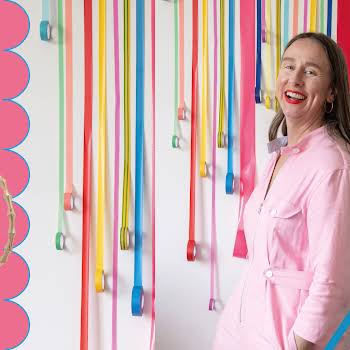
By Jennifer McShane
30th Mar 2017
30th Mar 2017
A revered Danish professor of psychology is urging us all to focus on the negative and dwell on the past, citing that our self-improvement obsession leads to nothing but unhappiness. But will this new anti-self-help book make us feel better about ourselves??
Even the term “self-improvement” is problematic. Regardless of how much you choose to juice or practice mindfulness or do any of the things we’re told should improve us – its meaning says, point blank, that we are not good enough as we are. That we must take steps to improve ourselves in some way, in order to be truly happy.
Modern life is accelerating, and we’re encouraged, moving as fast as we can. Happiness, it seems, is the ultimate?way to mark?success. Instagram will tell us to banish all negative?thoughts; that to be truly happy, we must keep moving, keep up and never stand still. But Danish philosopher and psychologist Svend Brinkmann argues that we must not be afraid to reject the self-help mantra and ‘stand firm’.
In his book, Danish bestseller Stand Firm: Resisting the Self-Improvement Craze, he says that forcing ourselves to be happy all the time could leave us emotionally stunted. And furthermore, happiness simply isn’t the appropriate response to all situations in life. That’s right,?not only is it okay not to feel constantly happy, but it’s right according to Brinkmann.??I believe our thoughts and emotions should mirror the world. When something bad happens, we should be allowed to have negative thoughts and feelings about it because that’s how we understand the world,? he said, calling the route to happiness via never-ending personal improvement “ludicrous.”
His book details seven steps toward recovery from self-help culture, including the following:
PUT ON THE ?NO? HAT
?We are constantly being incited to ?grasp opportunities? and ?embrace new challenges?,? Brinkmann says. In other words, we have acute FOMO. ?We need to give ?no? back its dignity. There’s nothing innately positive about change, nothing innately negative about staying still, and not all opportunities are worth embracing.? In other words, stepping back and really considering whether saying yes to change will give us happiness is key, instead of filling up a diary with plans because you feel you must attend them all.
READ A NOVEL – NOT A SELF-HELP BOOK OR BIOGRAPHY
“Even though novels are fiction,? says Brinkmann, ?they’re much truer than any self-help book and most biographies.? Ultimately, biographies and self-help books just reinforce the idea that life is something we control, according to?the author and they usually follow the same pattern: Tragedy, journey, happy ending. Novels’depict the human form as real, messy and often broken and are “much more accurate.”
SUPPRESS YOUR FEELINGS
This one sounds strange and annoys quite a few people, according to Brinkmann, because why, when some have been fighting for decades to express themselves would they want to hold back? ?He argues?it’s due to our era of “emotional capitalism.? ?You are expected to trade on your emotions, to be constantly displaying and sharing them in public.??But he points out that a key part of growing is learning to suppress some emotion, only learning to share it with certain people. “Adults should choose dignity over authenticity,?he argues and learn to keep their emotions under control.
“Self-help books that purport to teach people how to find happiness could encourage a harmful perspective on emotions, Brinkmann explains. “The underlying idea that anyone can make herself feel happy implies that unhappy people are to blame for their own misfortune.?Ultimately, negative emotions play an important and healthy role in how we understand and react to the world. Guilt and shame are essential to a sense of morality. Anger is a legitimate response to injustice. Sadness helps us process tragedy. And happiness is great too. Just not all the time.”
Stand Firm by Svend Brinkmann is published by Polity Press and out now






















